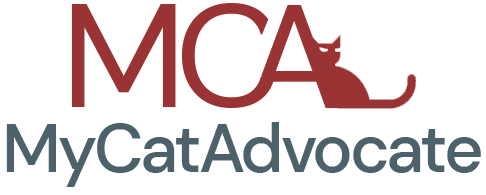Medicare Part A
Medicare Part A
Medicare Part A is referred to as “hospital insurance” but your benefits extend beyond coverage for inpatient hospital stays. Part A also helps pay for skilled nursing facility care, hospice care for individuals with a terminal illness, and home health care services.
Let’s break down some of the benefits you’ll receive under Medicare Part A:
Inpatient hospital care
Part A will cover a range of services when you are formally admitted to a hospital, including general nursing care, semi-private rooms, meals, drugs to treat your illness while you are admitted, and other hospital services. Inpatient status can be confusing – even if you stay in the hospital overnight, you may not be formally admitted as an inpatient. Your admittance will be based on your medical needs and determined by a physician. If you are being treated in a hospital setting as an outpatient, your care may be covered under Medicare Part B.
Skilled nursing facility care
In order for a stay in a skilled nursing facility to be covered by Part A, you will have to meet specific conditions. Your physician will have to determine that following an inpatient hospital stay, you require daily skilled care for a limited time under the supervision of a Medicare-certified facility.
Home health services
Your doctor can order home health services that may be covered by Part A and/or Part B if you are homebound and require part-time skilled nursing care, physical therapy, speech therapy, or occupational therapy services.
Hospice care
Even if you are enrolled in a Medicare Advantage plan, Part A will cover hospice services for patients who are terminally ill with a life expectancy of six months or less. Agreeing to hospice care means the patient will only receive comfort care and efforts will no longer be made to cure the illness. Families of hospice patients can also benefit from respite care, counseling, and support.
Enrollment in Part A
Enrollment in Part A is automatic if you’ve already been receiving benefits from the Social Security Administration or Railroad Retirement Board for at least 4 months prior to turning 65 years of age. If you’re not automatically enrolled, you can sign up online at www.medicare.gov or through the Social Security Administration. Coverage can start on the first of the month you turn 65 years old – and if your birthday is on the first of the month, it will start the month before.
How much does Medicare Part A cost?
Most people don’t have to pay a premium for Part A because they paid Medicare taxes while working for 40 quarters. If you don’t qualify for premium-free Part A, you may be able to buy the coverage. In 2022, if you worked and paid Medicare taxes for less than 30 quarters, you will pay a premium of $499 per month. If you worked for 30-39 quarters, you’ll pay $274 per month for Part A.
Costs for care under Part A
Hospital and skilled nursing care costs
Part A has a deductible you must pay for each “benefit period” before your coverage kicks in. There are no limit to the number of benefit periods you can use, but you must pay the deductible each time you enter a new benefit period. A benefit period begins the day you are formally admitted into a hospital or skilled nursing facility and ends when you haven’t received inpatient care for 60 consecutive days.
For instance, for each benefit period in 2022:
- The deductible for 2022 is $1484
- You will pay $0 for days 0-60
- You will pay $389 per day in co-insurance for days 61-90
- You will pay $778 per day in co-insurance for days 91 and beyond for each lifetime reserve day*
- Beyond lifetime reserve days, you will be responsible for all costs
*You will have a total of 60 reserve days that can be used during your lifetime. For those days, Medicare will pay all covered costs except for a daily coinsurance.
Hospice care costs
You will not have to pay anything for hospice care. If you are prescribed medications for symptom relief or pain management during hospice care, you may pay up to $5 for medications. You may also pay 5{32a721412c9f014731482d3bcd33fff94a68a4e452ebf88e8990d5da71c9dfe8} of Medicare-approved inpatient respite care.
Costs for home health services
You will likely pay $0 for home health care services as long as your physician determines that your services are medically necessary and you meet certain criteria. If you need any durable medical equipment to assist in your care, such as a hospital bed or wheelchair, you will likely be responsible for 20{32a721412c9f014731482d3bcd33fff94a68a4e452ebf88e8990d5da71c9dfe8} of the cost through Medicare Part B as long as you get your equipment from a supplier that accepts assignment and is currently participating in Medicare.
How does a Medicare Advantage plan affect my Part A coverage?
Medicare Advantage plans are required to include your Part A and Part B benefits – but many plans include additional coverage. Depending on the Medicare Advantage plan you have, you may have to use doctors and hospitals within the plan’s network of providers in order to get coverage. Check with your plan directly if you have questions regarding your specific benefits or costs.
